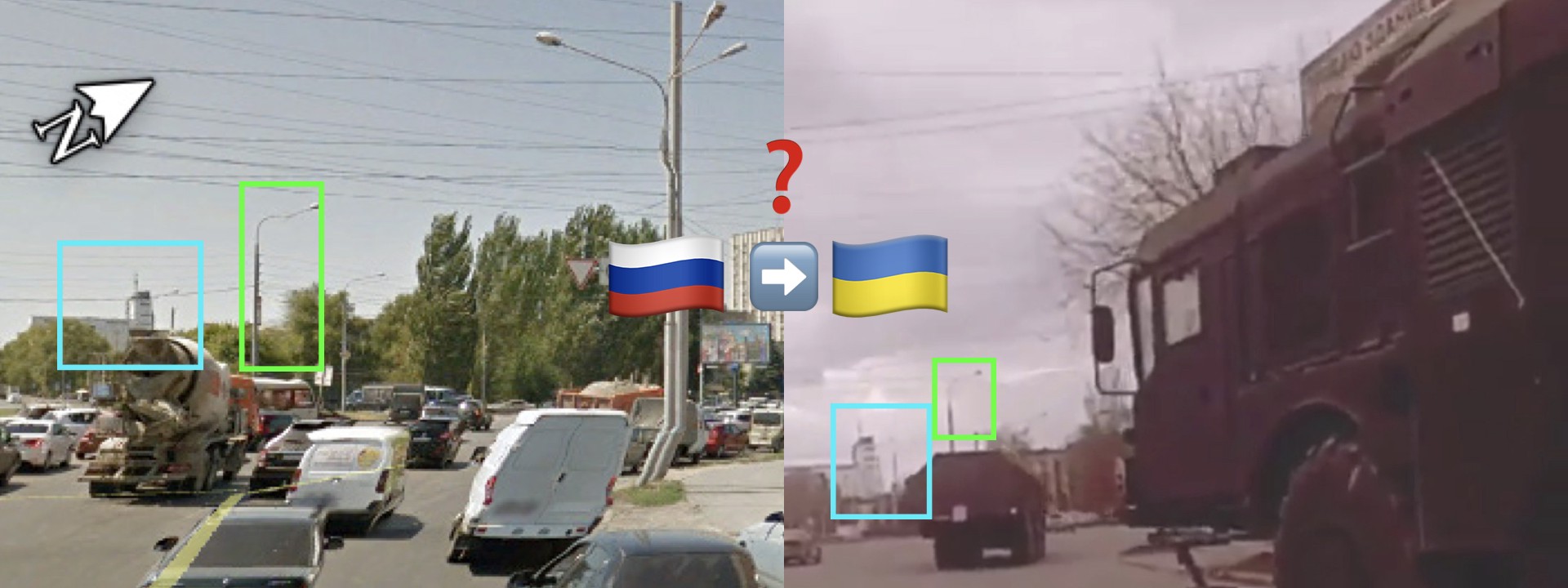#MinskMonitor: Missiles on the Move to Taganrog?
Investigating alleged video of Russian Bastion missiles moving closer to Ukraine
#MinskMonitor: Missiles on the Move to Taganrog?

Investigating alleged video of Russian Bastion missiles moving closer to Ukraine

Russian military build-up on Ukrainian borders started as early as the conflict in eastern Ukraine. @DFRLab previously reported on the illegal Bastion coastal defense system tests in the Crimean Peninsula in November 2017. Most recently, a video surfaced that claimed to spot three Bastion-P systems moving from Rostov-on-Don towards Taganrog in Russia. Taganrog is a transit hub for Russian military personnel and equipment moving to Ukraine.
@DFRLab investigated the video.
On March 26, a video appeared on Twitter depicting three Bastion-P (K-300P) (NATO reporting name SS-C-5 Stooge) mobile coastal defense systems allegedly on the move from Rostov-on-Don to Taganrog, Russia. Reverse image search suggested that the video was not posted before and was likely genuine. Rostov-on-Don is the largest Russian city near the Ukrainian border and host to the headquarters of the Russian Armed Forces’ Southern Military District (SMD).
Russia deploys at least 3x Bastion-P coastal defence missile system towards Taganrog, Rostov Oblast close to Ukraine border 🎥 https://t.co/Y4OhZt1Jzy pic.twitter.com/PLPTJKenPL
— Already Happened (@M3t4_tr0n) March 26, 2018
The equipment recorded in the video appeared to be Bastion-P systems, as claimed in the Twitter post. The up-to-date mobile systems were introduced into service in 2010 and are notably stationed in Kaliningrad, the Kuril Islands, and were recently recorded on the Crimean Peninsula. The main role of the Bastion-P is to engage various surface ships such as, but not limited to, those that comprise carrier battle groups, merchant convoys as well as landing craft. Reportedly, missiles fired from this system can target ground targets due to the multiple capabilities of the 3M55 Oniks missile.

The claimed location of the vehicles was confirmed using methods of geolocation. The local Yamaha Center (Ямаха Центр Георг Марин) captured on the video served as a clear landmark in finding the location. The center was located on Dovatora street (ул. Доватора) in Rostov-on-Don, the surroundings of which matched up with those displayed in the video.

Electricity poles visible in the distance and buildings clearly coincided with Google Street View imagery. The video ended when the first vehicle made a right turn on the roundabout.

The Twitter user who posted the video claimed that these mobile systems were moving towards Taganrog. Google Street View imagery revealed that the right turn on the captured roundabout leads towards Taganrog, just as the Twitter post claimed.

The first vehicle in the column clearly made a right turn towards the first roundabout exit.

As mentioned before, the road that the vehicles took leads to Taganrog, which is the infamous transit hub of Russian military personnel and equipment moving towards Ukraine. @DFRLab already reported on Taganrog as the last transit town of Russian troops due to cross the border, which is only 50 kilometers away.

Conclusion
This was the only recorded military convoy seen potentially moving towards Ukraine as of late. One possible reason for this military movement is the upcoming annual military parade on May 8. Last year, the rehearsal drills started on April 4, therefore this movement would fit the last year’s timeline. Another possible reason is military build-up on the borders with Ukraine. This option would not be surprising bearing in mind that Bastion-P systems were already stationed in the Crimean Peninsula in 2017. @DFRLab will continue to look for additional open source evidence to confirm or deny these claims.
@DFRLab will continue to Russia’s military developments and Minsk II violations in Russia and Ukraine.
Follow along for more in-depth analysis from our #DigitalSherlocks.

